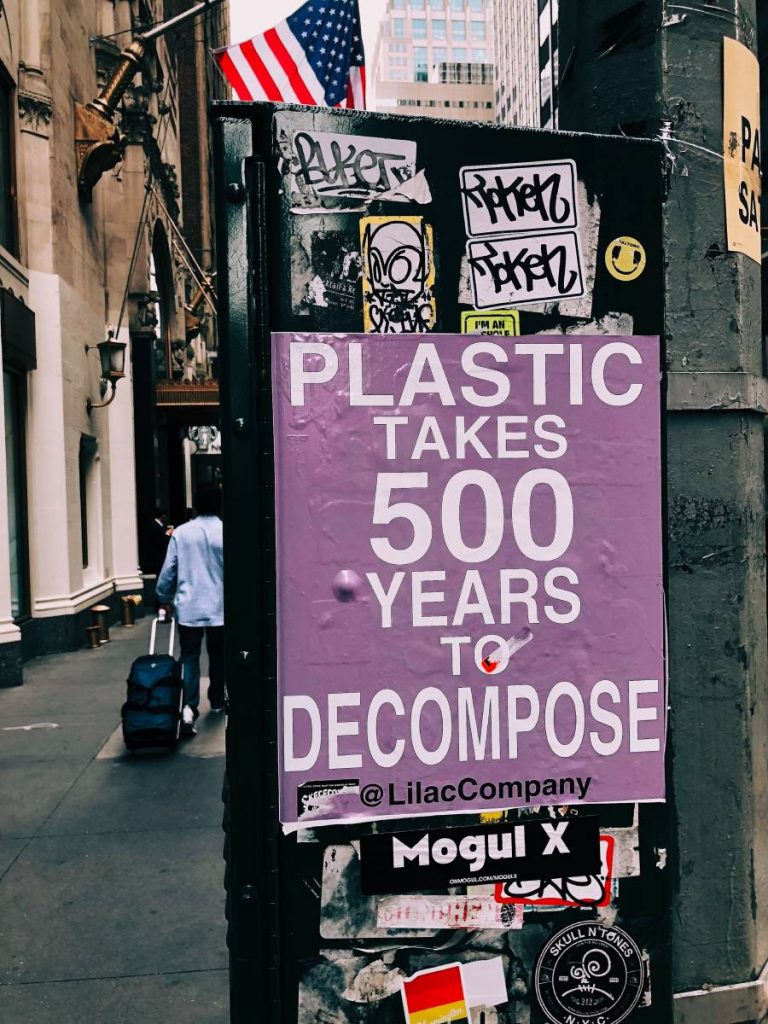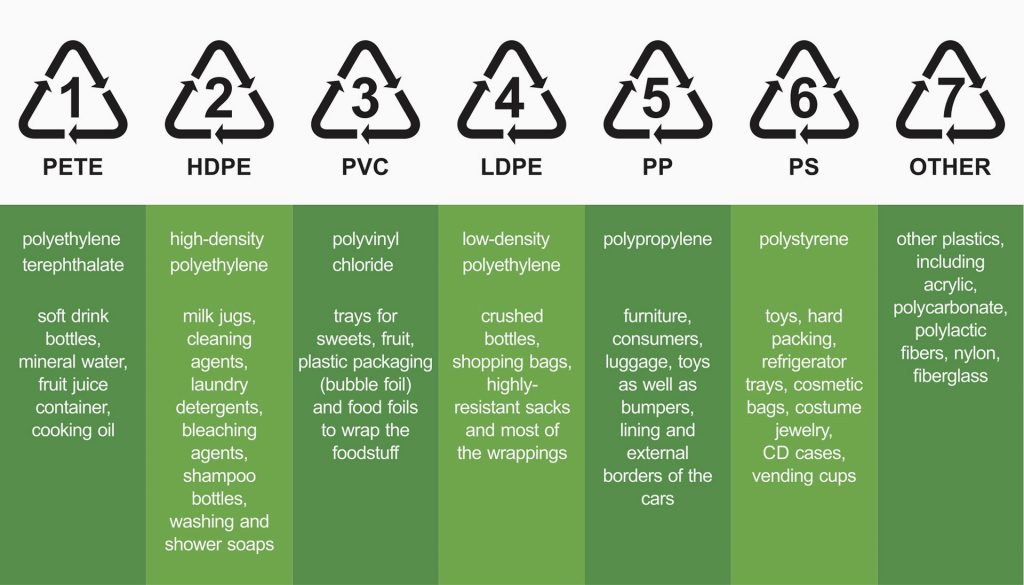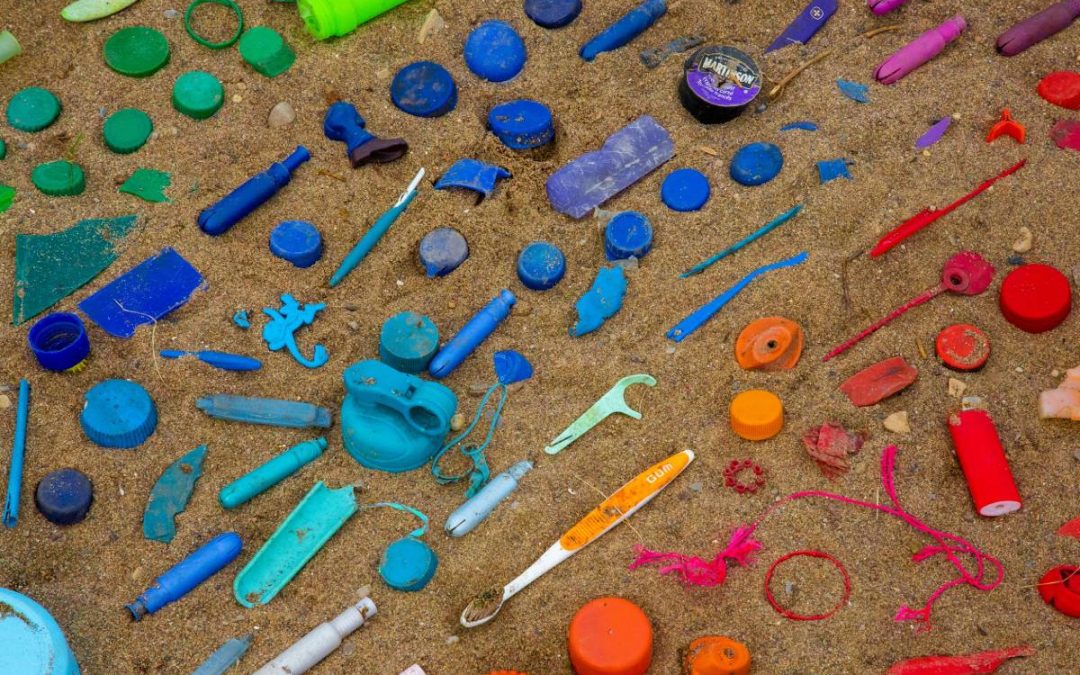If you are thinking of implementing more eco-conscious waste disposal procedures in your commercial building, you need to know which plastics can be recycled and which can’t.
At Escape Waste, we know that the current recycling rate for plastic in America is only 8.7%, a figure that needs to be much higher if we commit to sustaining our planet.
- Not All Plastics Can Be Recycled
- Different Types of Plastic with Different Resin Codes
- Everyday Plastic Items that You Cannot Recycle
- Plastics Aren’t All Created Equal
- 1: PET or PETE (Polyethylene Or Terephthalate)
- 2: HDPE (High-Density Polyethylene)
- 3: PVC (Polyvinyl Chloride)
- 4: LDPE (Low-Density Polyethylene)
- 5: PP (Polypropylene)
- 6: PS (Polystyrene)
- 7: Other Plastics
- Plastics You Can Recycle
- Plastics You May Recycle
- Tips On Recycling Plastic
To learn how you can make a difference and effectively recycle more plastics, read on!
This guide will show you which plastics you can recycle and how to ensure your plastic waste is fit for recycling in the first place.
Not All Plastics Can Be Recycled
Most people aren’t aware of this, but not all plastics can be recycled.
If you are planning to install recycling receptacles in your home, business or commercial building, you need to know which plastics are accepted via standard bins and which cannot be recycled.
Different Types of Plastic with Different Resin Codes
Plastics with higher resin codes tend not to be recycled, as they are more challenging to recycle.
Everyday Plastic Items that You Cannot Recycle
- Plastic straws
- Coffee cups
- Keyboards
- Plastic bags
To help you understand why you cannot recycle these plastics, let’s examine them in detail:
Plastic Straws
Switching to paper straws isn’t for nothing.
Plastic straws are made of polypropylene, which cannot be recycled. Even if plastic straws are counted as recyclable plastic, they are tiny, making them difficult to sort in a conveyor belt system. For this reason, it is not efficient for recycling centers to accept plastic straws.
This is why many fast-food chains and businesses are making the switch to paper straws, which are more biodegradable than plastics, which can take up to 500 years to biodegrade in a landfill.

Plastic Bags
Plastic bags aren’t easy to recycle.
For this reason, most recycling centers do not recycle plastic bags. Thin bags and films can easily clog machines if they are not separated properly, meaning that plastic bags are a hazard at recycling centers.
If there are plastic bags in your recycling when collected, they may reject it, as they cannot accept this mixed type of recycling.
Coffee Cups
Starbucks, Dunkin’ Donuts, and other coffee cups contain a thin layer of polypropylene on the inside, meaning that they cannot be recycled as paper or plastic. So, placing your coffee cup into the recycling bin once you’re finished isn’t the good deed you think it is.
Unfortunately, a thin layer of plastic is necessary to prevent the paper from absorbing the coffee and collapsing, so you cannot change this detail.
Instead of using paper coffee cups, try using a reusable coffee receptacle. For Starbucks members, there is a discount for those using refillable coffee cups, and you can buy them in-store!
Less waste, more delicious coffee for you at a reduced price.
Plastics Aren’t All Created Equal
The recyclability of plastic is dependent on its resin code. This section will cover all the different resin codes, from 1 to 7, to help you better your recycling habits.
All plastics have a small resin code, the number displayed in a triangle of arrows. People often mistake the presence of this triangle of arrows as a sign that the plastic is recyclable.
But, it shows the resin number, which is an accurate indicator of whether you can recycle it or not.

Source: wcpsolutions.com
So, here are the resin numbers and what they indicate about the type of plastic used in the product:
1: PET or PETE (Polyethylene Or Terephthalate)
PET is a common type of plastic used in plastic bottles, jars, and cooking oil containers. You probably use it daily. PET is a recyclable type of plastic.
2: HDPE (High-Density Polyethylene)
This type of plastic is used in milk jugs, cleaning product bottles, and shower product bottles. High-density polyethylene is also a recyclable type of plastic.
3: PVC (Polyvinyl Chloride)
People use this type of plastic in guttering, cladding outside houses, children’s toys, and plastic trays. PVC, or polyvinyl chloride, is not recyclable plastic.
4: LDPE (Low-Density Polyethylene)
Plastic wrappings are low-density polyethylene. Plastic grocery bags and the plastic bags that food products come inside are all low-density polyethylene.
This kind of plastic is only sometimes recyclable.
5: PP (Polypropylene)
Yogurt pots, cream pots, and butter tubs are all polypropylene. You can also use this kind of plastic to make the threads in ropes and carpets. Bottle caps are made from polypropylene also.
This kind of plastic can sometimes be recyclable.
6: PS (Polystyrene)
Styrofoam products are made using polystyrene. Disposable coffee cups, packing peanuts, takeaway containers, and coolers are sometimes made from polystyrene. This kind of plastic is occasionally recyclable.
7: Other Plastics
This category is for products that do not fit into any other category. They could be made from many different kinds of plastic or non-recyclable types of plastic.
Despite this, some plastic products falling into category 7 may be recyclable.
Plastics You Can Recycle
Resin types 1 and 2 are generally recyclable, and there will be no issue with you placing these plastic types into your regular plastic recycling receptacle.
Some examples of products that you can easily recycle through general recycling include:
- Resin type 1 – water bottles, plastic trays, soda bottles, plastic jars, cooking oil containers.
- Resin type 2 – Shampoo bottles, cleaning product bottles, milk jugs.
- Resin type 5 – yogurt pots, cream pots, butter tubs, bottle caps, ready-meal trays.
Depending on your municipality’s recycling capabilities, some other types may be recyclable.
Plastics You May Recycle
Type 3 – PVC
Like other types of plastic, you can potentially recycle PVC.
However, this doesn’t mean that you should just put PVC into your commercial building’s recycling bins. To recycle PVC, you must find a recycling center that can recycle PVC.
You can do this using Earth911, a database with all the information necessary for your recycling needs.
You can also donate or repurpose your PVC, depending on its usability.
Type 6 – Polystyrene
Polystyrene is 95% air, so it is not cost-effective to store or ship. Polystyrene is often contaminated with food or beverages and is challenging to clean because it is porous.
Essentially, recycling polystyrene uses more energy than is saved. Technically, you can recycle it; it’s just not worth it.
However, you can recycle some plastic cutlery made using polystyrene at a suitable facility.
Type 4 – LDPE
Plastic bags cannot be recycled using your traditional recycling bins. There are plastic bag recycling bins found in grocery stores, or you can use Earth911 to find a service that collects or allows you to drop off plastic bags for recycling.
Plastic bags can cause blockages when being processed with other kinds of plastic, which is why they need to be handled by a specialized service.
Tips On Recycling Plastic
You must follow specific rules if you want to implement an effective recycling scheme. Here are a few tips:
- Wash your recycling – plastic with food on it or in it will not produce high-quality recycled plastic material, so be sure to wash all of your recycling before placing it in your recycling bins.
- Recycled plastics are of lower quality – glass and metal are far more suitable for recycling than plastics. You can only recycle plastic 2-3 times before it loses quality. Try to use less plastic for this reason, and move towards glass and metal.
- Biodegradable plastics need to go to a specific factory – biodegradable products are only effective if shipped to a place where the heat and humidity are controlled. They are placed with other biodegradable plastics.
Summary
Recycling is the way forward to ensure we make the most of our resources and reduce our planet’s pollution. However, plastic is one of the most complex everyday materials to recycle, and some aren’t recyclable. This means that moving forward, businesses and organizations should be mindful of their plastic usage and seek to use other materials that can be more easily recycled.

